What We Do
Collaborative Research
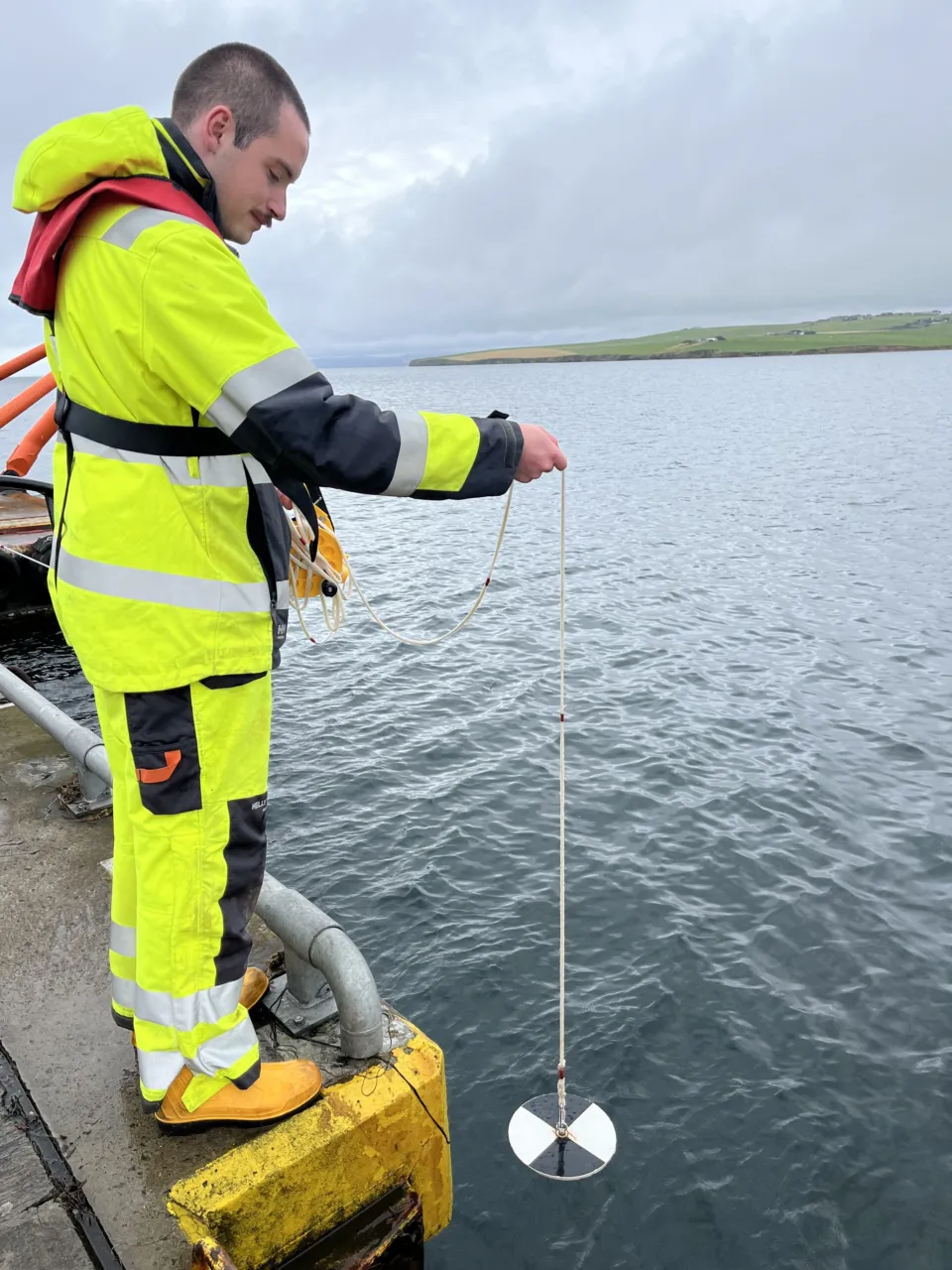
Scottish Coastal Observatory Scapa site
Marine Directorate
Scapa Pier is one of the Marine Directorate’s Scottish Coastal Observatory sites. Since 2002, Marine Environmental Unit has been collecting sea water samples from Scapa Pier as part of the monitoring programme. Samples for salinity, nutrients, chlorophyll and phytoplankton are collected weekly and sent to Marine Scotland Science Marine Laboratory, Aberdeen for analysis. A temperature logger is left in-situ all the time.
More information and to access the data collected can be found from Marine Directorate website.
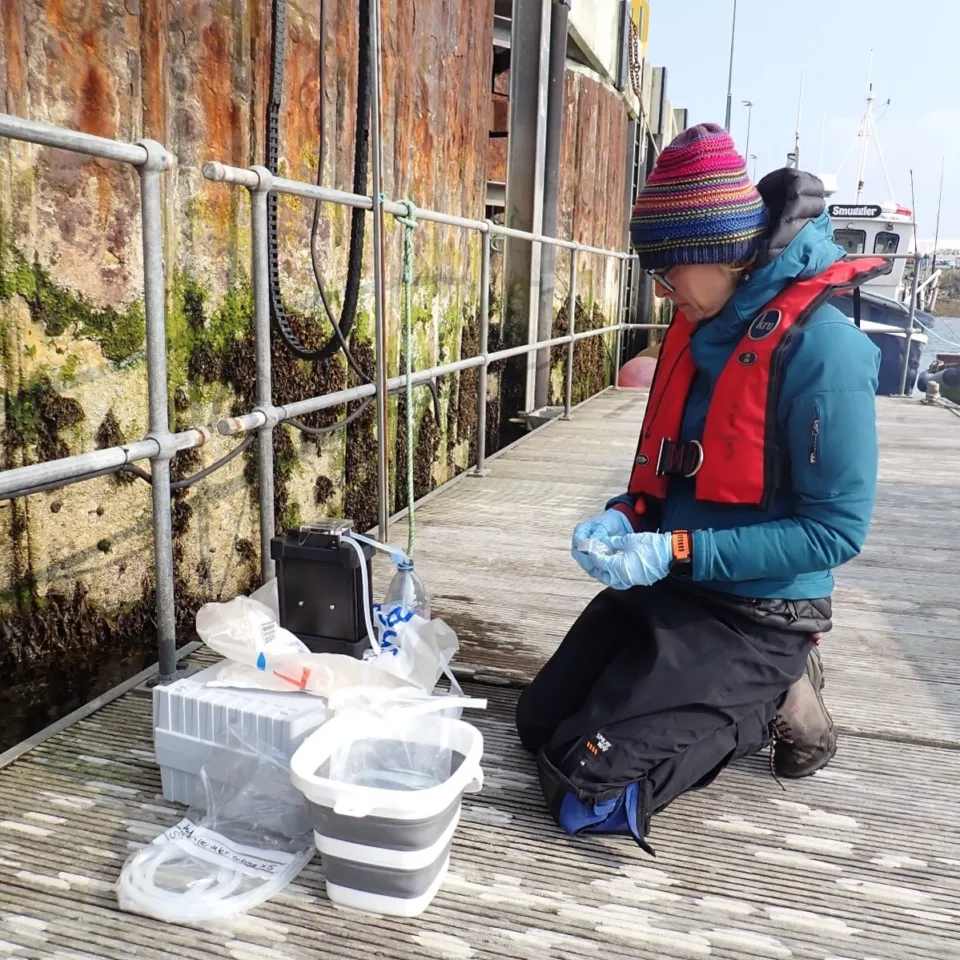
eDNA monitoring for INNS in marinas in Scotland
Marine Directorate
Since 2016 Kirkwall, Stromness and Westray Marinas have been included in the Marine Directorate Aberdeen Laboratory’s long- term environmental DNA (eDNA) monitoring programme. Water samples for eDNA are collected and tested for the presence of carpet sea squirt Didemnum vexillum, leathery sea squirt Styela clava and compass sea squirt Asterocarpa humilis. eDNA is tested by use of species-specific qPCR assays.
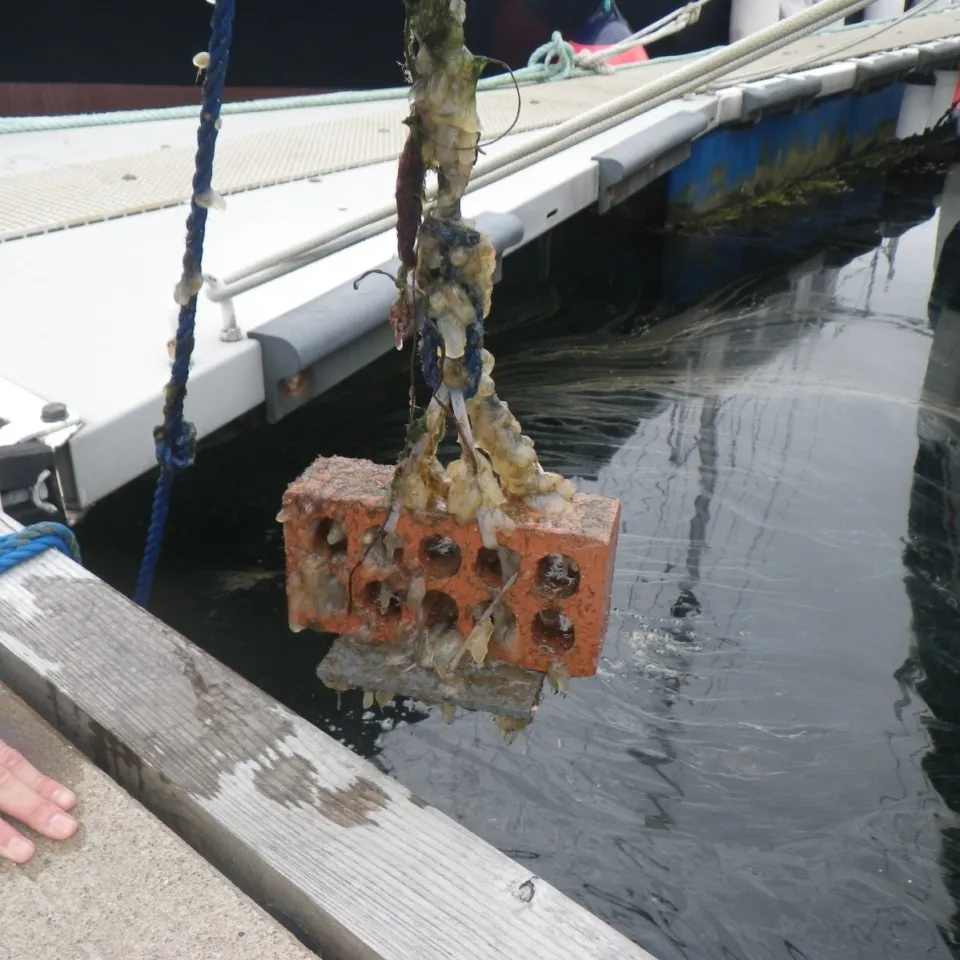
Assessment of fouling alien species in ports with the Smithsonian Environmental Research Centre protocol and experimental applications
University of Pavia and the Smithsonian Environmental Research Center
A workshop for The Intensive School for Advanced Graduate Studies (ISAGS) organized by the University of Pavia (UNIPV) and the Smithsonian Environmental Research Center (SERC) was run in 8-12 January 2024 at University of Pavia.
The Aim of this workshop was to create a network of marine invasive non-native species scientist across Europe and to design and carry out a joint large-scale assessment of marine bioinvasions in Europe, Mediterranean Sea and USA. The assessment is going to be carried out using a method that has been successfully applied for over 25 years in the United States by the SERC.
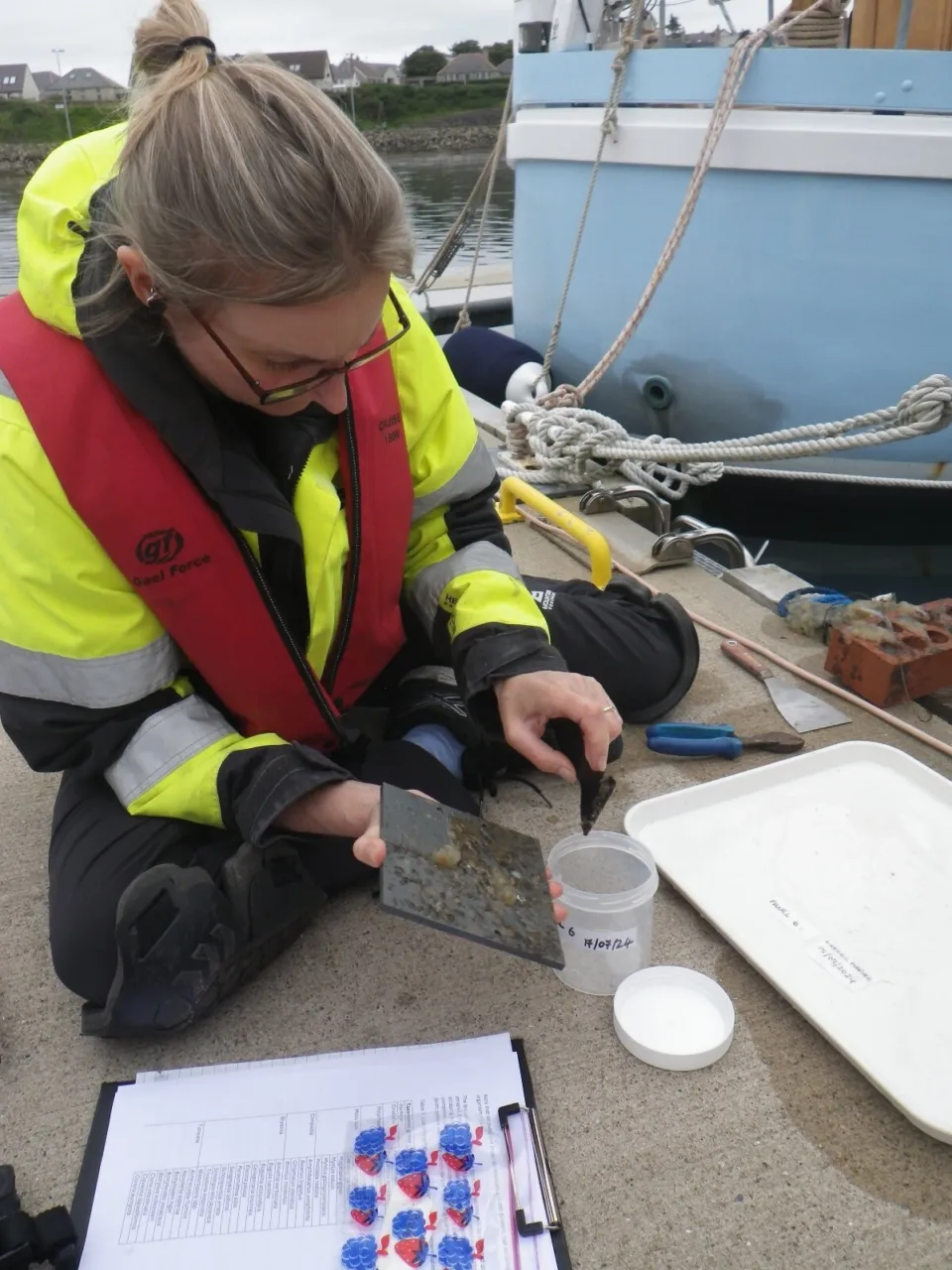
The experiments were conducted in 2024. MEU deployed SERC settlement panels in Kirkwall Marina in April. The panels were taken out of the water in October 2024, the biofouling will be analysed and results shared with the project.
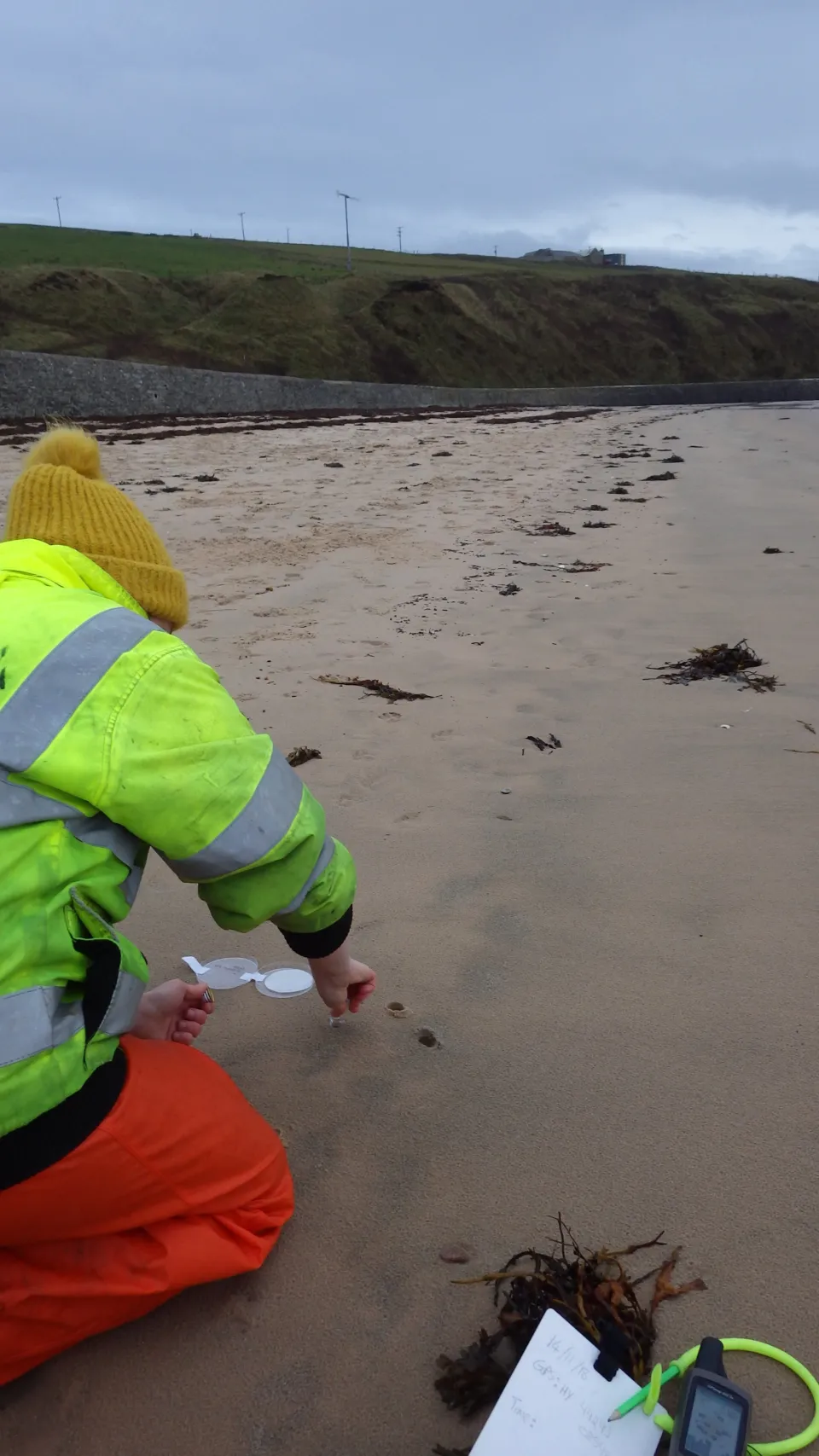
Microplastics monitoring
Heriot-Watt University
Microplastics monitoring in selected sandy beaches was started in 2016. The work is carried out in collaboration with Heriot-Watt University. MEU collects samples from 13 sites annually, since 2018 samples have been collected monthly from Scapa Beach. The samples are sent to Heriot-Watt University, Edinburgh campus for processing and analysis.
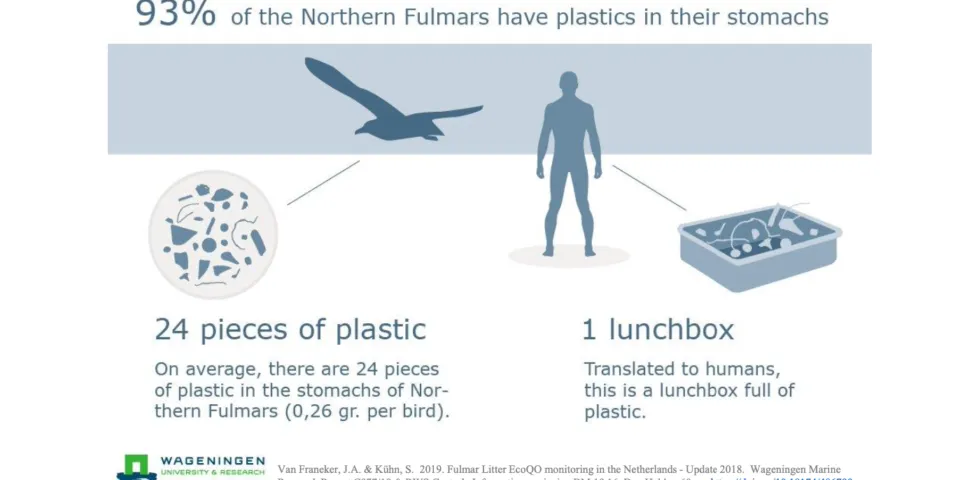
Save the North Sea Fulmar Project
Wageningen University & Research, Netherlands
Thousands of beach-washed fulmar corpses have been collected from all the countries bordering the North Sea for over 15 years. In the UK, birds have been collected largely from Shetland, Orkney and the NE of England but also from other sites along the east coast. The stomach contents have been analysed in the Netherlands (the lead partners) at the Wageningen Marine Research Centre.
Orkney Save the North Sea Project co-ordinators are Dr Jenni Kakkonen and Keith Fairclough. MEU have a project freezer for storing fulmar corpses which are dissected annually.
Anyone can get involved in the project, whenever you are out walking along the coast, if you come across a fulmar corpse, no matter how old or smelly, even if it has already been scavenged, contact Jenni or Keith so that the fulmar corpse can be collected for this important research project.
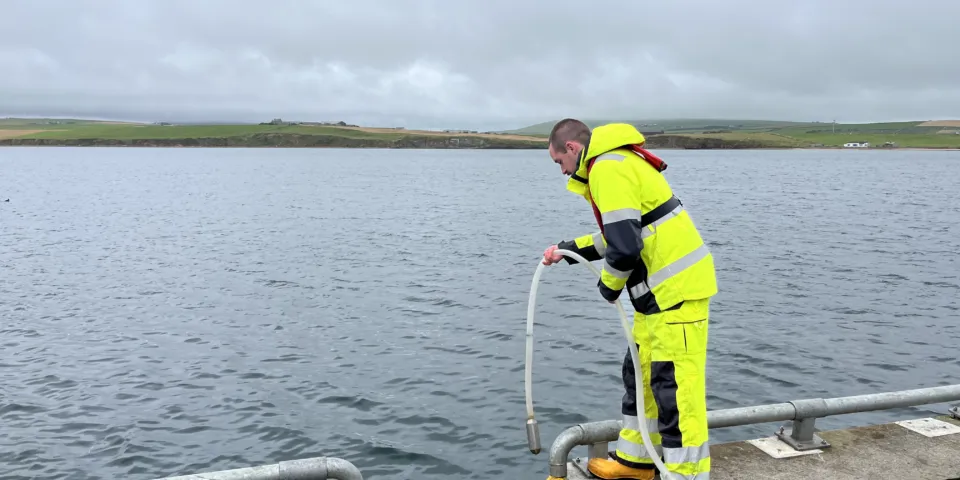
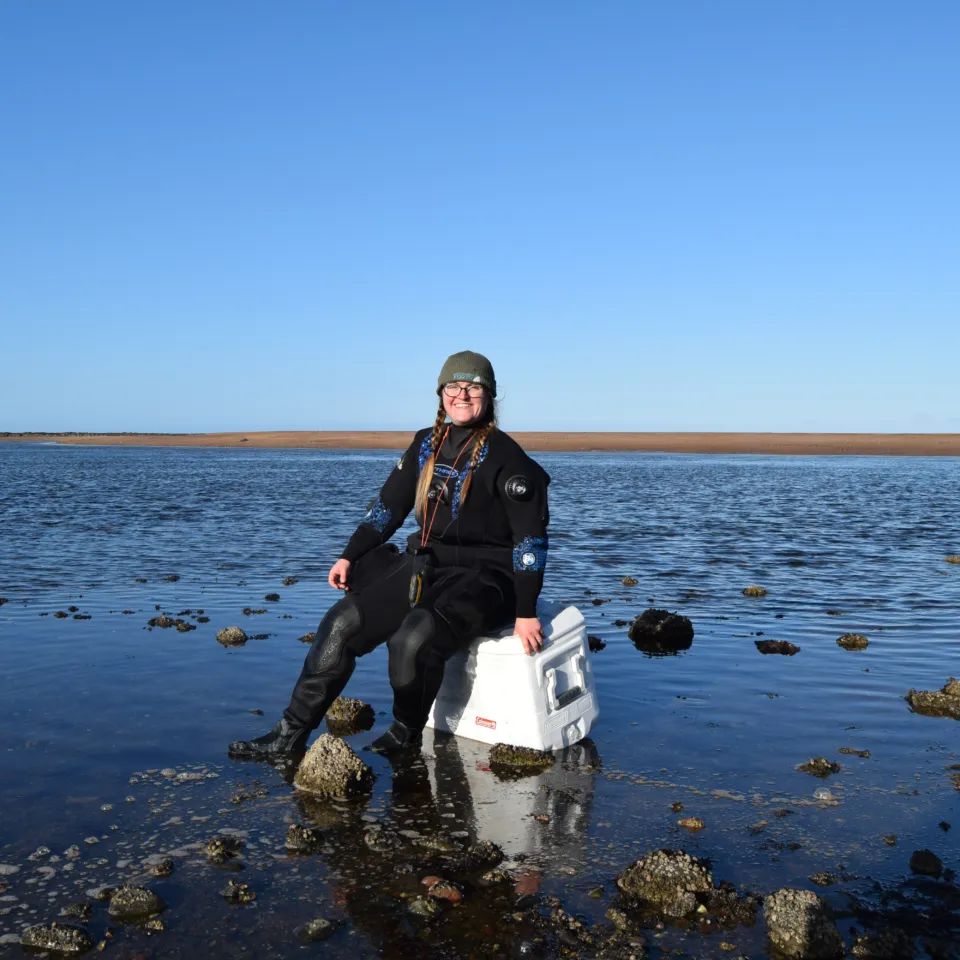
Emmy Cooper-Young
PhD Student
The Native Oyster (Ostrea edulis) Restoration Opportunity: optimising site selection modelling and the effect of climate change on oyster restoration
Supervisory Team:
Professor William Sanderson (Heriot-Watt University)
Dr Simon Waldman (Heriot-Watt University)
Dr Jenni E. Kakkonen (Orkney Islands Council, Harbour Authority)
Professor John Baxter (Orkney Independent Marine Advisory Group).
Extended Supervisory Team:
Dr Darren Fa (University of Gibraltar)
Dr Joanne Porter (Heriot-Watt University)
Dr Mark Hartl (Heriot-Watt University)

Thomas Baxter
PhD Student
Rocky shore biodiversity: Separating the effects of anthropogenic impacts from natural variation and climate change impacts
Supervisory Team:
Dr Andrew J Blight (University of St Andrews)
Professor Mike Burrows (Scottish Association for Marine Science)
Dr Jenni E. Kakkonen (Orkney Islands Council Harbour Authority)
Professor John Baxter (Orkney Independent Marine Advisory Group)
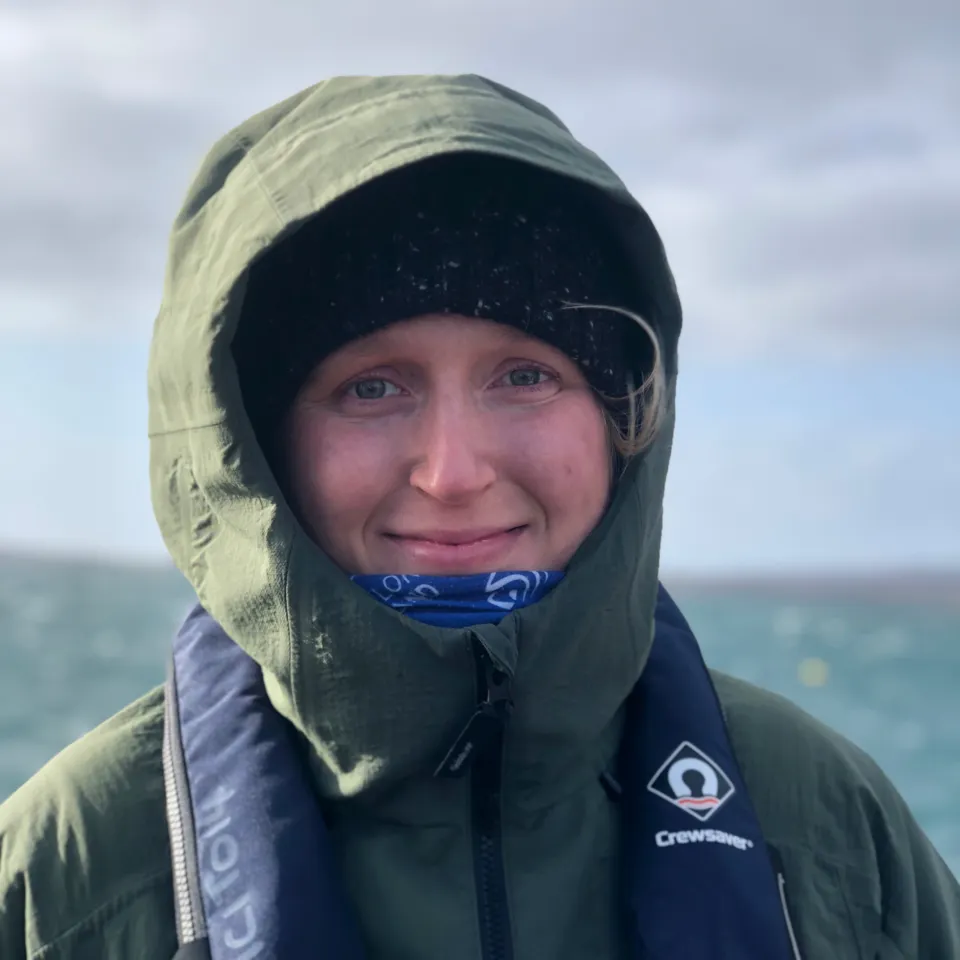
Elinor Spencer
PhD Student
Tracing patterns of vessel movement – understanding secondary spread of fouling marine invasive non-native species in Scotland
Supervisory Team:
Dr Rebecca Giesler (UHI Shetland)
Professor Elizabeth Cottier-Cook (UHI Scottish Association for Marine Science)
Dr Lauren McWhinnie (Heriot-Watt University)
Dr Jenni E. Kakkonen (Orkney Islands Council Harbour Authority)